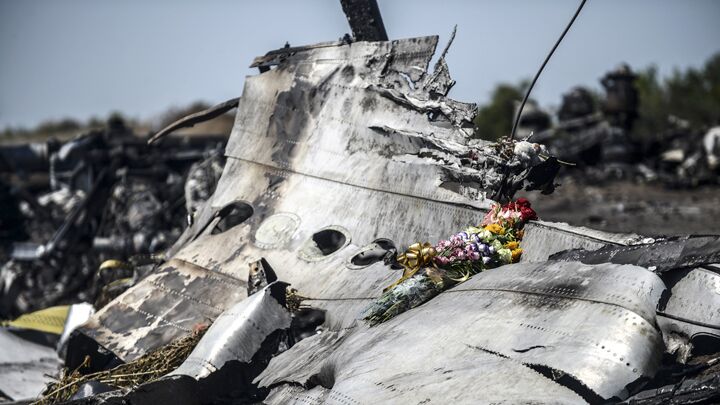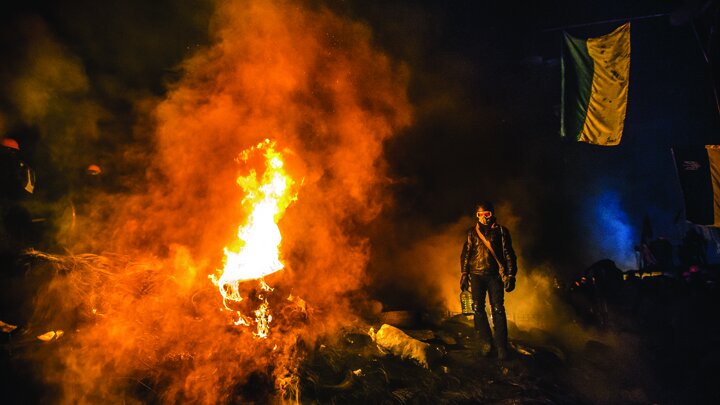
EU Slaps Tough Sanctions on Russia
The EU imposed tough sanctions on Russia after Russia-backed separatists brought down the MH17 airliner last month.
Now, “tough” is a tricky word. It could mean a lot. Europe’s sanctions on Russia, which entered into force August 1, are “tough” in that they exist. In previous rounds of sanctions, the EU was just playing games, banning a handful of Putin’s friends from visiting the EU just so Brussels looked like it was doing something. They were fake sanctions
These sanctions are different. Russia will notice them; they will cause real pain and have costs for Europe. EU Observer reported that EU sources expect the new sanctions to cost Russia $30.8 billion this year (1.5 percent of its gross domestic product) and $100.5 billion next year (4.8 percent of its gdp). It also reported that the EU expects to lose $53.7 billion this year (0.3 percent of EU gdp) and $66.9 billion next year (0.4 percent of EU gdp) once Russia retaliates against the sanctions.
Russia sees itself as a soldier fighting in a battle of life and death. A solider in such a situation won’t be intimidated by a large parking fine.
What the Sanctions Will Accomplish
The meat of these sanctions aims to cut Russia off from the global financial markets. Though they won’t stop Russia, the sanctions have the potential to have a major impact on world affairs.
Europe has spent the past five years learning how much damage this can do to a country. The EU has banned its citizens from any long-term investments (over 90 days) in Russian state-owned banks. This includes Sberbank, the largest lender in all of central and Eastern Europe. Its share price has fallen by nearly a third since the start of the year. vtb, another major bank on the EU’s sanctions list, has seen its share price fall by one-fifth over the same time period.
“The aim is to force Russian banks into the arms of the state, bleeding the Russian budget and reserves,” wrote the Telegraph’s Ambrose Evans-Pritchard.
The EU took a similar approach to Russia’s energy industry. Refusing to buy oil and gas from Russia would be painful, so instead it’s withholding investment in Russia’s oil industry. In time, this could be painful. The International Energy Agency estimates that Russia needs $750 billion in extra investment over the next 20 years to prevent a drop in its oil and gas production. Russia also needs Europe’s technology in order to obtain oil in hard-to-reach places.
So if Russia cannot get this money from Europe and America, where else is there to turn? The obvious answer is China and India. We’ve already seen that as Russia increasingly antagonizes the West, it’s drawing closer to Asia. Jeremiah Jacques wrote about this in his article “The Rise of Asia.” These sanctions will only strengthen this trend.
Germany’s Role
As yet, there’s no completely reliable account of Germany’s role in putting together the latest package of sanctions. But for them to go into effect, they must have been approved and probably even encouraged by Germany.
That’s all we know for sure, but there are hints of drama behind the scenes. Here’s one account from Britain’s Telegraph:
As recently as last Friday night, sources in Washington involved in tracking the negotiations were deeply pessimistic that a divided Europe could muster the collective political will to impose meaningful economic pain on Moscow.
However, the mood in Europe is understood to have changed radically over the weekend after Mr. Putin failed to return several phone calls from Angela Merkel, the German chancellor.
The Wall Street Journal gives a different, but similar, account:
Three days after the crash of Malaysia Airlines Flight 17, German Chancellor Angela Merkel spoke to Russian President Vladimir Putin for at least the 30th time since the Ukraine crisis erupted.
She had a blunt message, according to people briefed on the phone conversation: Call me if you have progress to report in defusing the conflict.Putin refused to listen to Merkel and so, for the first time, Europe imposed meaningful sanctions.That was July 20. The two leaders haven’t spoken since. The silence marks a breach in perhaps the most important relationship in European geopolitics, illustrating the daunting challenges facing the West in trying to calm the crisis in Ukraine. More broadly, the frayed relationship between Ms. Merkel and Mr. Putin shows the disintegration of a decades-long effort by both Germany and Russia to bind the World War ii adversaries to each other. Mr. Putin, in particular, appears to have given up, for now, on his years-long project of nurturing Germany into the role of Russia’s closest European partner, illustrating the increasing degree of international isolation he seems prepared to accept. Ms. Merkel’s well of patience with Mr. Putin finally ran dry in the aftermath of the Flight 17 disaster, German officials say, as promises by the Russian president to lean on the rebels to improve the situation at the crash site failed to change things on the ground. Departing from past efforts to avoid a quick escalation of the West’s response, Ms. Merkel threw her weight behind sanctions targeting swaths of the Russian economy despite doubts in Berlin over their efficacy.
Here’s how things worked in the past: Russia upset Europe and America. America would impose sanctions. Europe would talk about it. Then Merkel would chat to Putin on the phone. He would agree to give Europe a few meaningless, face-saving concessions and in return Europe would only impose meaningless, face-saving sanctions.
This time, that process broke down. Putin refused to listen to Merkel and so, for the first time, Europe imposed meaningful sanctions. Is this Germany’s way of demanding that Russia take it seriously?
Chancellor Merkel has never been one to stand in the way of German public opinion and this, rather than Putin’s refusal to talk, could have been what brought her around.
Escalation
The biggest potential impact of these sanctions is their potential for escalation. If Russia responds with its own sanctions, or even military action in Ukraine or elsewhere, this could prove the start of a vicious cycle that pushes Russia and Europe farther into opposing camps.
That’s not a certain outcome. Putin’s next move will probably be to try and win a few EU countries over to his side, breaking down European unity. But the potential for danger is there.
“You can applaud the actions of the West, or condemn them, but you can hardly ignore them,” Evans-Pritchard wrote. “In the 30 years or so that I have been writing about world affairs and the international economy, I have never seen a more dangerous confluence of circumstances, or more remarkable complacency.”
“The fear you see in Europe because of events in Crimea is going to cause 10 leaders in Europe to unite in a sudden and dramatic way,” Trumpet editor in chief Gerald Flurry wrote in May, in “The Crimean Crisis Is Reshaping Europe!”

The latest sanctions could accelerate that process, forcing Europe to draw closer in fear of Russia while forcing Russia toward China and India after being shut out of Europe’s economy.
For more on the effects Russia’s invasion of Crimea is having on Europe, read Mr. Flurry’s cover article from the May-June issue of the Trumpet.
